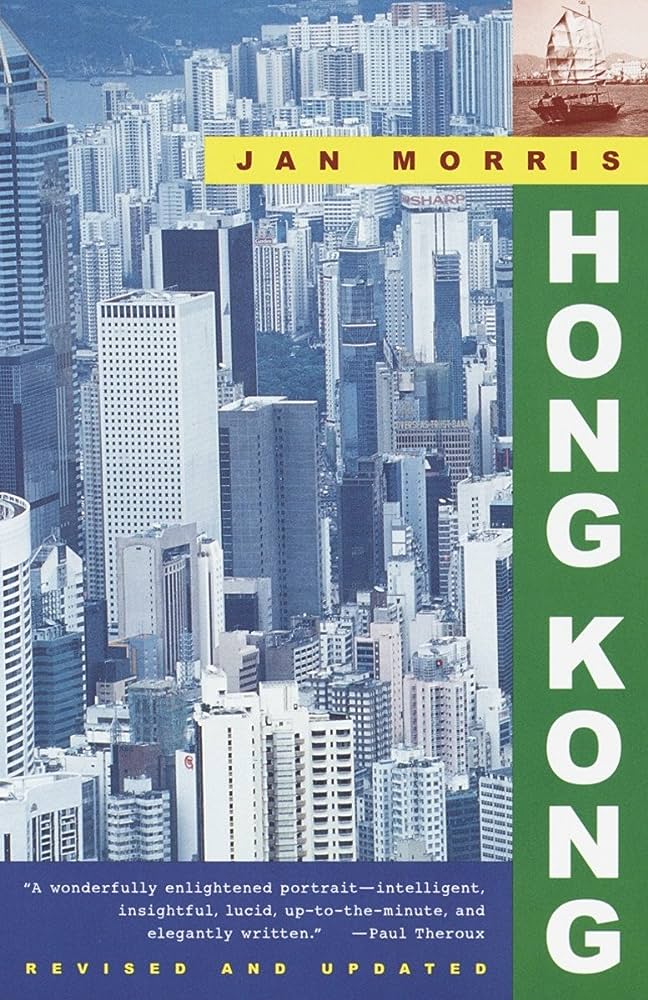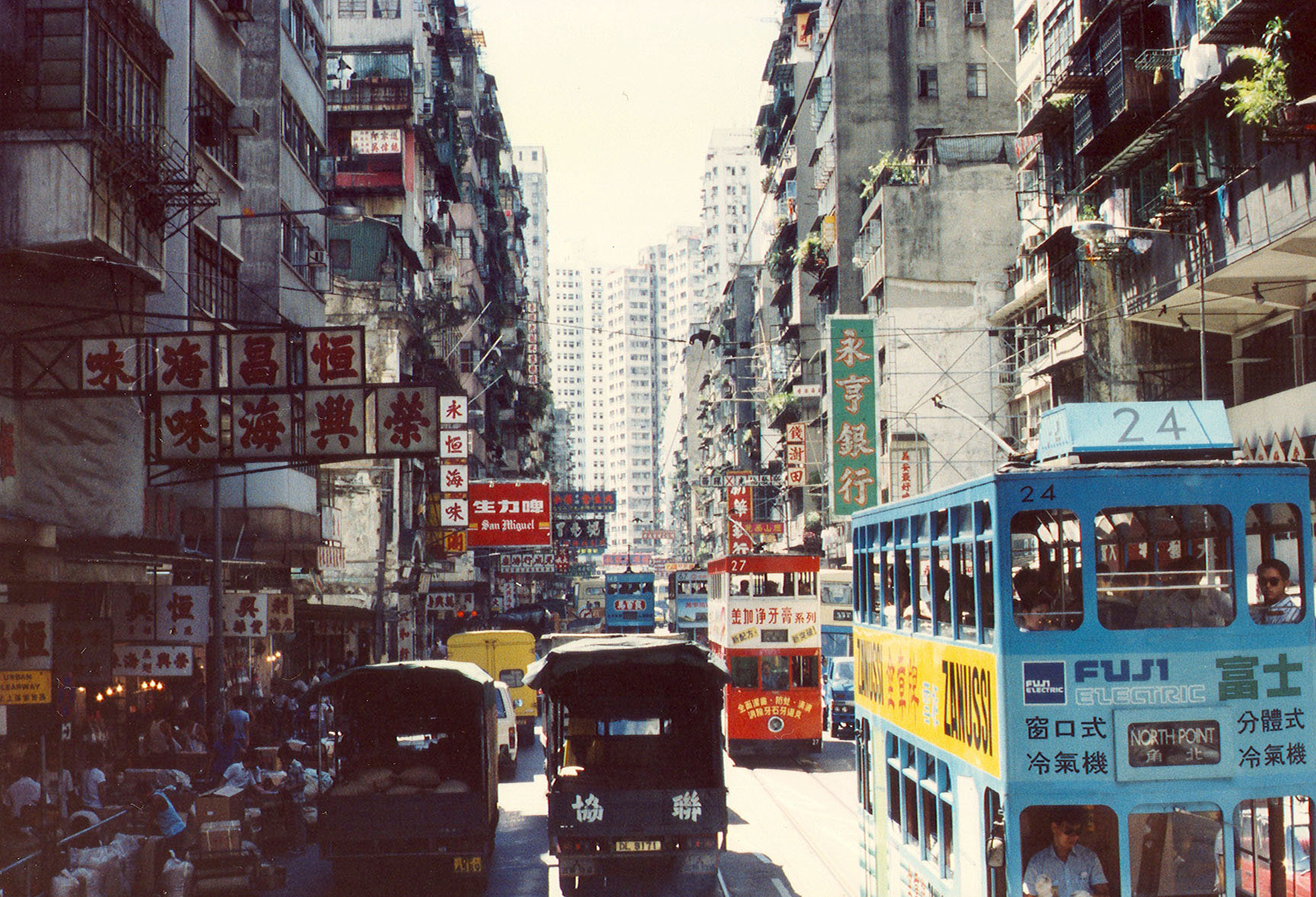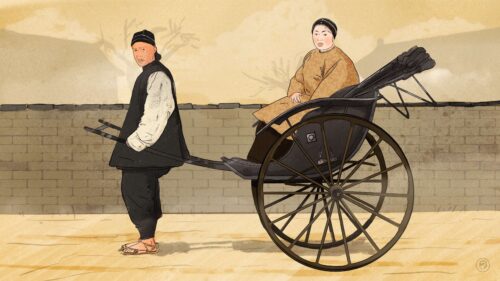This is book No. 31 on Paul French’s Ultimate China Bookshelf.

Blurbs:
“In Morris’s version of this freewheeling port the pervading emotion is nostalgia — a nostalgia for Britain’s lost colony…Morris argues that Britain has been little more than temporary caretaker and manager and that it is right and inevitable that Hong Kong revert to China.”
—Chicago Tribune
“In 1997 Hong Kong will revert to China. To write its obituary, Pax Britannica in a nutshell, no literary mandarin could be more suitable than Jan Morris.”
—The Observer
“With Hong Kong moving inexorably towards reunification with mainland China in 1997, Jan Morris explores the fears and expectations of the world’s most dynamic city.”
—The Arizona Republic
“Jan Morris is our best writer on empire and it is difficult to think of anyone who could recount this tale with such authority, elegance and sensitivity.”
—Times Literary Supplement
About the author:
Prolific writer of travel, history, memoir, novels, and biography, Jan Morris was born James Humphry Morris in 1926 in Somerset, England. Famously, Morris was a member of the 1953 British Mount Everest Expedition, the only journalist (for the Times) to accompany the expedition. He climbed with the team to a camp at 22,000 feet and made the announcement of the successful ascent to time with Queen Elizabeth II’s coronation that year. Morris went on to cover the Suez Crisis in Egypt and the trial of Adolf Eichmann in Jerusalem.
Morris was married twice before deciding to transition to life as a woman in 1964, undergoing gender reassignment surgery in Morocco (U.K. doctors refused, as Morris had not divorced). Morris detailed her transition in Conundrum (1974), the first time writing under the name Jan. As Jan Morris, she became Britain’s premier historian of empire, as well as a noted travel writer visiting just about everywhere — Trieste, Australia, Spain, Venice, South Africa, Oman — which were all among her many book-length studies. She also wrote extensively about her long-time and much-loved home in North Wales. She is also well known for the Pax Britannica Trilogy of studies (written across a decade in the 1970s) of the British empire that remain firmly in print today.
Jan Morris died in 2020 at 94 still writing her memoirs. In an interview with the BBC shortly before, she said that she did not like to be described as a travel writer, as her books are not about movement and journey, but about places and people.
The book in 150 words:
Britain’s preeminent and most prolific travel writer — if you can call her that — tackles Hong Kong. First published in 1988, Hong Kong is a portrait of the British empire’s last — and in many ways, most anachronistic — outpost, as the countdown to the handover to China was gathering momentum. Written with her trademark elegance and panache, Morris depicts a city suspended between a colonial past and the uncertainties of China’s future. Morris has a nice blend of Hong Kong trivia juxtaposed with an analysis of the colonial iniquities of life in Hong Kong while raising (for the first time, perhaps, in a mainstream book) the various scenarios and issues that a post-1997 Hong Kong would face.
Your free takeaways:
So like a fanfare, as the vapours are burnt away, a last phenomenon of China is revealed to you; a futuristic metropolis, like something from another age or another sensibility, stacked around a harbour jammed fantastically with ships — the busiest, the richest and the most truly extraordinary of Chinese cities, identified in the new orthography as Xianggang.
I have been writing about Hong Kong on and off for thirty years, and I come back to it now primarily as a student of British imperialism. Hong Kong is an astounding epilogue of Empire, and it is piquant to note that its return to China will occur almost exactly a century after the climactically imperial Jubilee celebrations of 22 June 1887.
To the Chinese Hong Kong has never been anything except part of China. China is China to them, traditionally every Chinese can only be a citizen of China, and the mere occupation by foreigners of a patch of Chinese territory does nothing to alienate it from the motherland.
And if they fail, and the people of Hong Kong remain to the end powerless to govern their own affairs, vulnerable to anything that may come out of China? Then the British will leave behind them, if not a sense of betrayal, at least a sense of disappointment. They will have missed their chance to give Hong Kong the one quality it has always lacked — nobility, the balance of purpose and proportion that the geomancers strive for.
Why this book should be on your China bookshelf:
Morris’s book on Hong Kong came after several decades of visiting and writing about the colony. Though Morris ranged far and wide in her writing — from the summit of Everest to the Venetian canals to the Welsh countryside — Asia was a constant refrain. Partly this was due to a love of the countries and languages of the region — visits to China, India, Hong Kong, and Japan. But partly also, if not primarily, because Morris’s leitmotif in all her writing was empire and British imperialism — the “Pax Britannica.” That Everest trip with Mallory that launched her career was timed with the coronation of Queen Elizabeth II in 1953, a seeming New Elizabethan age (though it would see the dismantling of the British empire into a confusion of newly independent states, the creation of the mini-imperial venture in the Commonwealth, and not a little violence and bloodshed along the way in parts as disparate as Malaysia, Kenya, Bangladesh, and Northern Ireland, to name just a few outposts of imperialism).
This book on Hong Kong was timed to capture the fascination with this “final” handover (though parts of the empire remain even today). Fascinatingly, one issue raised was the apparently peaceful nature of the handover (compared to other “end of empire” moments — Malaya, Suez, Ireland, East Africa, etc.). Morris died in late 2020, too soon to comment on the events in Hong Kong of 2019 and their ongoing grisly aftermath.
Morris could probably have gone on updating this book annually forever. Indeed, there are slightly revised and updated editions that take into account the dreadful events of June 4, 1989 and Tiananmen Square, which occurred between the publication of the hardback and paperback editions, an inauspicious augury for the run-up to 1997, which Morris discusses in the closing pages. The first editions were subtitled “Epilogue to an Empire.” Some later editions emphasized the word “Xianggang” — Hong Kong in Mandarin — in the subtitle, with Morris considering the likely impending Sinification of the former colony.
Hong Kong is part-history and part-travelog. The history chapters deal succinctly with the Opium Wars, the founding of the colony of Hong Kong, the Japanese occupation in World War II, and the colony’s response to 1949 and the influx of refugees from across the border. Later histories of Hong Kong have come and gone — the most recent, Vaudine England’s Fortune’s Bazaar (2023), is highly recommended — but still, Morris’s rapid overview is highly useful.
What Hong Kong is throughout, as with all Morris’s work, is highly literary and beautifully crafted. What has assured Morris a loyal and ongoing readership, even after her death, is the quality of her nonfiction prose.
Next time:
The fall of Hong Kong on Christmas Day 1941 to the Japanese was perhaps one of the most traumatic days for the colony and for the British empire. It still resonates today in Hong Kong’s memory and landscape. There have been many accounts, histories, memoirs of the events, but one book in particular challenged the wartime narratives and asked whether or not the deadly collapse of December 1941 should have happened at all, and what actually went on in the colony between 1942 and 1945…







